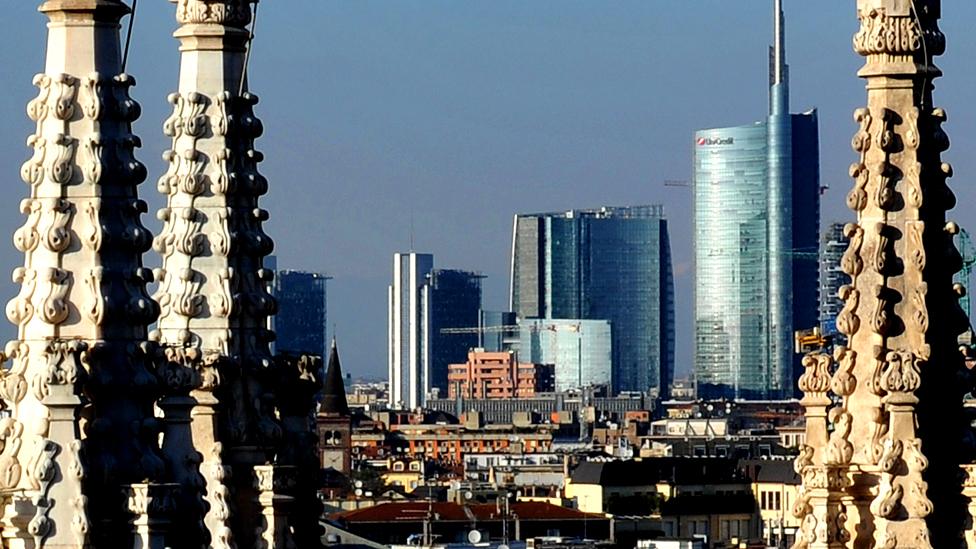Italy waters down windfall tax on banks
- Published

The Porta Nuova business district seen from the terrace of Duomo Cathedral in Milan
Italy has watered down plans to hit its banks with a windfall tax, leading to a rebound in the share prices of the country's lenders.
On Monday night, the government passed a one-off 40% tax on the profits banks earn from higher interest rates, in a shock move that saw shares plummet.
It said proceeds would be used to help mortgage holders and to cut taxes.
But late on Tuesday evening, the finance ministry said the tax would be capped at 0.1% of assets.
The tax will apply to the income that comes from the gap between the banks' lending and deposit rates.
Shares in Italian lenders such as Intesa Sanpaolo, Banco BPM and UniCredit, which tumbled on Tuesday, recovered some ground on Wednesday after the initial plan was diluted.
A windfall tax is a levy imposed by a government on companies that have benefited from external conditions or events, such as a rise in the oil price or higher interest rates, leading to much bigger than expected profits.
A hike in official interest rates has resulted in record profits for Italian banks, prompting the government's initial decision.
The surprise move was agreed by Prime Minister Giorgia Meloni's ministers at Monday's cabinet meeting, where they pledged to invest the funds raised into helping households and businesses struggling with the cost of borrowing.
"One has only to look at banks' first-half profits to realise that we are not talking about a few millions, but of billions," Deputy Prime Minister Matteo Salvini told a news conference in Rome late on Monday.
But Italian banks said the tax on their profit would be "substantially negative" for the sector.
Initial reports suggested around €2bn (£1.7bn) could be generated from the levy, before the cap.
Italy's parliament now has 60 days to pass the tax decree into law.
Other European countries including Hungary and Spain have imposed similar windfall taxes on banks.
In May, Lithuanian lawmakers backed a temporary windfall tax on banks to fund defence spending, while Estonia is planning to raise the tax level on banks to 18%, up from 14% this year.
Related topics
- Published8 August 2023